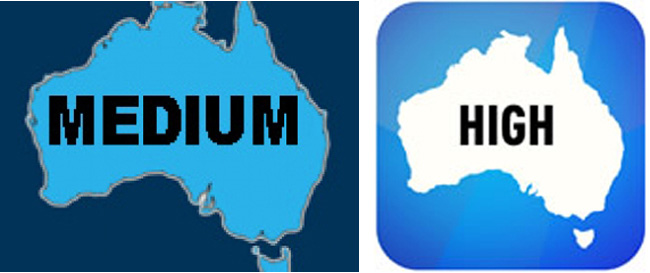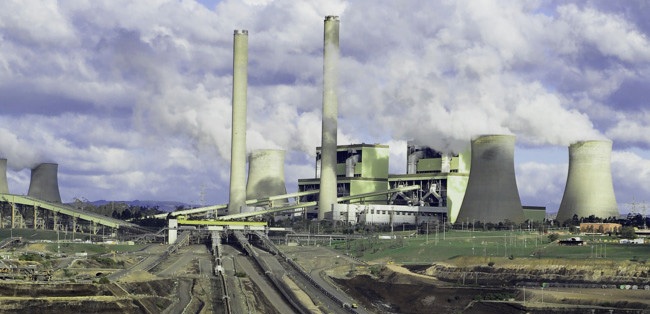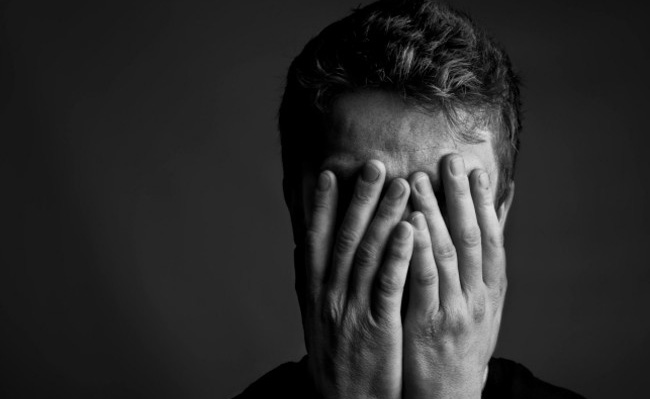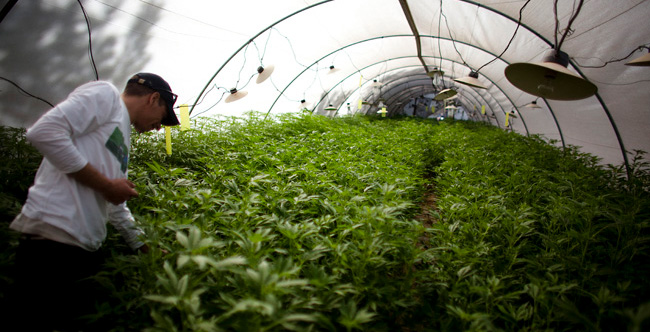GQ Australia columns, December 2015: Fear, climate, guns, suicide and cannabis
In July 2015, I was invited to write occasional online columns for GQ Australia. I’ve collected these five columns as excerpts below, with the publication date noted in brackets beside the title.
Are We Living In An Australia Led By Fear? (July)
An increase in national surveillance powers has an equal and opposite reaction of a decline in civil liberties – writes Andrew McMillen
One particular sentence on nationalsecurity.gov.au catches the eye: “Protecting all Australians from terrorism and violent extremism is the Australian Government’s top priority,” it reads.
This sentence appears on a website which is home to the National Terrorism Public Alert System, among other cracking reads such as a list of ‘foiled Australian attacks’ (four incidents) and ‘overseas terrorist attacks’ (six).
The National Terrorism Public Alert System informs us that the nation is currently at a ‘high’ level of alert, indicating that a terrorist attack “is likely”. This is just one step down from ‘extreme’ – where a terrorist attack “is imminent or has occurred” – but a step above the previous ranking of ‘medium’, which warned that a terrorist attack “could occur”.
It was in mid-September 2014 that the alert rating changed from ‘medium’ to ‘high’. The Internet Archive’s Wayback Machine captured the change, between September 12 and September 18.
The switch-over itself was pretty simple stuff, really: the web copy is practically identical, and a blue map of Australia with an ugly black font in the centre was replaced by a white diagram ringed by blue.
To read the full column, click here.
Why Australia Is Headed For An Avoidable Climate Calamity (August)
Climate change is the iceberg of our times and Australia is steering straight into it – writes Andrew McMillen.
One of mankind’s greatest achievements is the discovery that the energy from coal – ancient sunlight buried in the ground – could be used to drive our technological progress.
In 2015, we continue to reap the rewards of that discovery, yet most of us acknowledge that coal, like oil and gas, is a finite resource: there’s only so much of it beneath our feet, and sooner or later, the supply will be exhausted.
There is a simple logic behind this problem. When one generation selfishly chooses to use as much coal, oil and gas as humanly possible, the next generation will suffer the supply shocks, as well as the environmental effects: burning these fossil fuels adds a toxic combination of pollutants to the atmosphere, increasing the speed at which the planet warms.
Intelligent governance acknowledges this as a fact, and a problem to be solved swiftly, lest future generations suffer for our inaction. For a time, Australia led the developed world in this regard, when then Prime Minister Kevin Rudd announced in 2007 that climate change was “the great moral, environmental and economic challenge of our age”.
These were sage words from a leader who ultimately failed to install an effective mechanism to solve that challenge. Politics got in the way of true progress, cruelling an admirable long-term vision.
To read the full column, click here.
Why Encouraging More Guns Into Australia Is A Terrible Idea (August)
In the wake of the Martin Place siege, Australia’s relationship with its long-standing gun laws might be about to change and that’s a very scary thought – writes Andrew McMillen.
A gunman named Martin Bryant forever changed Australia on 28 April 1996, when he used a semi-automatic rifle to kill 35 people at a cafe in the Tasmanian town of Port Arthur.
Within twelve weeks, John Howard’s government had devised, drafted, debated and implemented legislation which saw the banning of semi-automatic weapons and shotguns, and triggered a compulsory gun buyback scheme. As a result, the ownership and storage of other firearms were tightly restricted, too.
The Australian approach to gun control was shown in stark contrast to the United States in September 2013, when John Oliver’s brilliant three–part series on The Daily Show neatly skewered gun-mad Americans who mindlessly oppose any change to gun laws.
“Obviously, gun control doesn’t work. It can’t work. It will never work. So how was your scheme a failure?” Oliver asked a bemused John Howard, who replied, “Well, my scheme was not a failure. We had a massacre at a place called Port Arthur 17 years ago, and there have been none since.” Australia’s rate of gun deaths per 100,000 people was 1.03, compared with 10.69 in the U.S., according to 2012 figures from gunpolicy.org.
In the 18 years prior to the Port Arthur massacre, there had been 13 mass shooting incidents , where five or more people were killed by a firearm. The gunman’s destructive actions so shocked and appalled the electorate that Howard’s sweeping changes to gun ownership laws were widely supported in the community.
To read the full column, click here.
Why Australian Men Need To Talk More About Suicide (September)
Too many Australians die of suicide – around 2,500 per year, or 48 per week – and too few talk about it, or its surrounding issues – writes Andrew McMillen
The numbers are shockingly high: suicide is the leading cause of death for Australian men and woman aged between 15 and 44.
I’m a member of this demographic, but stating sad facts such as these in plain black-and-white can have a numbing effect. Though mentally healthy myself, I have seen the devastating effects of severe depression up close with someone I love, which is one of the reasons why I’ve made a few attempts as a journalist to uncover stories about Australians who have faced mental illness with courage and openness.
The first was an article for Australian Penthouse in 2012, The Low Down, about an online campaign named Soften The Fuck Up, which seeks to challenge the low levels of mental health literacy recognised by its founder, Ehon Chan, after he moved to Australia from Malaysia.
“What’s the most common thing that Australian men get when they talk about any kind of weaknesses?” he asked me during our interview. “The response is generally, ‘Harden the fuck up.’ There’s no equivalent phrase for that in Malaysian!” he said with a laugh. Soften The Fuck Up aims to encourage offline conversations, by equipping young people – in particular, men – with ideas of how to recognise signs and symptoms of mental health issues among their peers.
My most recent story on this topic, Over Troubled Water, was published in The Weekend Australian Magazine in early September 2015, ahead of World Suicide Prevention Day on September 10. This article explored the topic of suicide prevention at an iconic location in inner-city Brisbane: the Story Bridge, which is the site of at least four suicides per year, on average. Counterintuitive though it might seem, installing anti-jump barriers on high bridges has been shown to greatly reduce the incidence of suicide, and the problem is not simply shifted to another location.
To read the full column, click here.
How We Could All Benefit From Cannabis Regulation (October)
The potential benefit of legalising cannabis means drug reform in Australia should be taken seriously – argues Andrew McMillen.
A few years from today, once other Australian states have followed the lead set by Victoriain early October 2015 to move toward the legalisation of cultivating cannabis for medicinal purposes, the nation might finally be ready to have a conversation that needs to be had. Namely: why don’t we regulate and tax the recreational use of cannabis, our most popular illicit drug?
At least 1.9 million Australians use cannabis each year, according to the most recent data from the United Nations 2014 World Drug Report. This is a huge proportion of Australians, and it’s significant for a couple of reasons. First, that’s a lot of adults of voting age, who’d probably be keen to support political parties that provide reasonable alternatives to the tired, ineffective tough-on-drugs approach we’ve seen in this country for generations.
And second, this number represents an enormous amount of disposable income that’s leaking from the national economy into an unregulated market, far beyond the reach of the Australian Taxation Office.
Given that recreational cannabis use is illegal, the only way to obtain the drug in 2015 is to associate with people who are, by definition, criminals. Once that transaction has been made, and you hand over your cash in exchange for the product, you’ve become a criminal, too. If caught by police, you will face charges of possession which may result in fines or, at the extreme end of the spectrum, imprisonment.
This reality is known, understood and accepted by most Australians who choose to interface with illicit drug use. Perhaps a small minority of particularly inflammatory cannabis users get a kick out of breaking the law in this way, but most would probably much rather avoid the hassle of potentially being exposed to the criminal justice system purely because of their desire to use a drug that’s increasingly being legalised by state and federal governments throughout the world.
To read the full column, click here.




